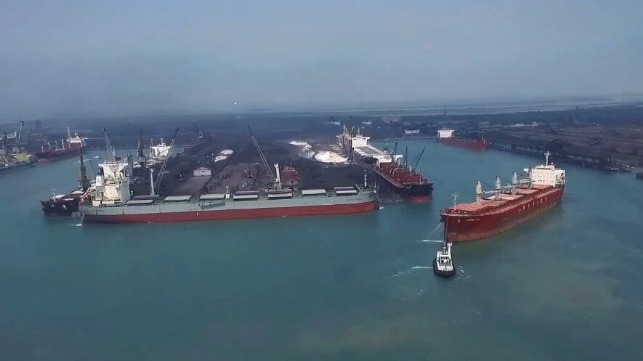India Plans to Roll Out Green Fuel Bunkering at Top 12 Seaports

The Indian government has unveiled plans to make green hydrogen-based fuels available at the nation's biggest ports by 2035, part of a broader climate program for its ports sector.
The new "Harit Sagar" guidelines call for "quantifiable reductions in carbon emissions over defined timelines," according to Shipping Minister Shri Sarbananda Sonowal. The overall objective is to reduce carbon emissions per tonne of cargo handled by a quarter by 2030 and two thirds by 2047.
While each of India's 12 major ports will get across the finish line in its own way, the plan has several firm commitments. All 12 should have facilities for LNG bunkering by 2030. Green hydrogen / green ammonia bunkering should follow by 2035, starting with Paradip, Kandla and Tuticorin.
In addition, the program calls for electrification of 50 percent off all vehicles and equipment at the top 12 ports by 2030, rising to 90 percent by 2047. That electric power will increasingly be renewable, with a 60 percent green electricity requirement for 2030, rising to 90 percent in 2047.

that matters most
Get the latest maritime news delivered to your inbox daily.
The top 12 ports will have to build out electric vehicle charging stations within the next three years. The policy may also include incentives for drayage operators to convert to cleaner fuels, like compressed natural gas, green hydrogen or battery-electric power.
India aims to achieve net-zero emissions by 2070, well after the Paris agreement goal of 2050. As a developing nation, India argues that it should be allowed more time to benefit from the low cost of fossil fuels, just as developed nations have for decades. Due to a heavy reliance on coal, electric utilities account for 40 percent of India's GHG emissions, and this is a primary area of focus for CO2 reduction; India imported 160 million tonnes of coal in FY2022-23, making it one of the most important cargo commodities for India's seaports.
